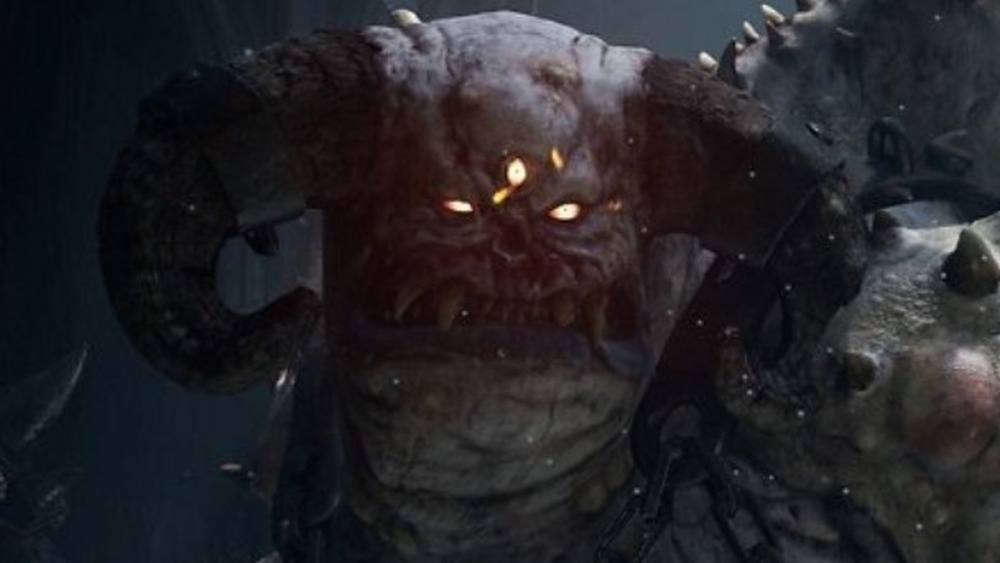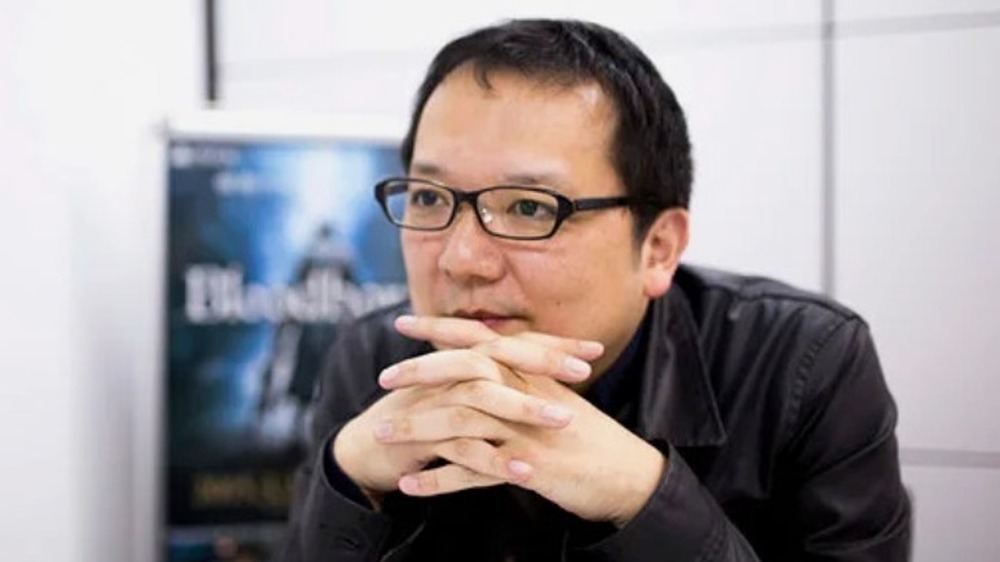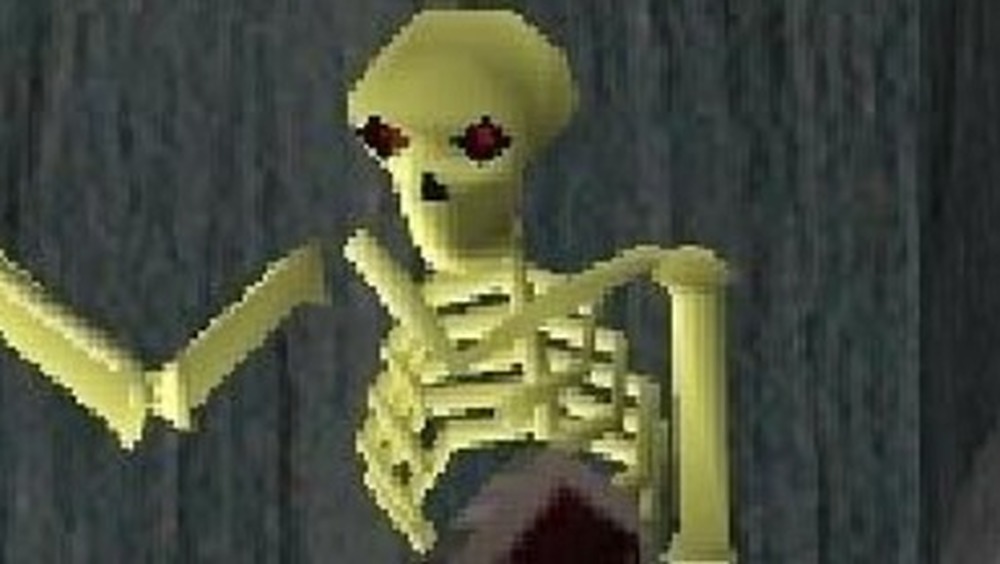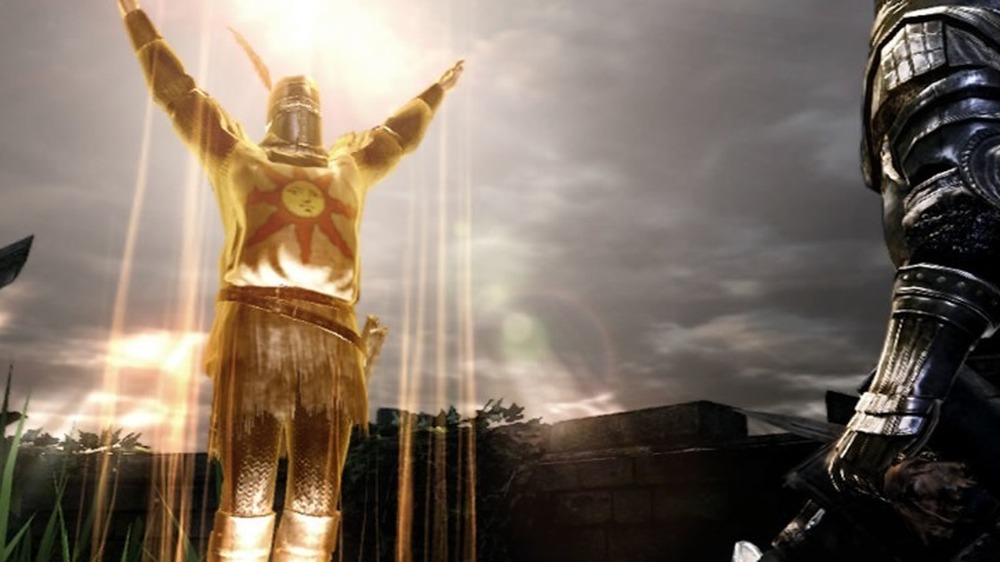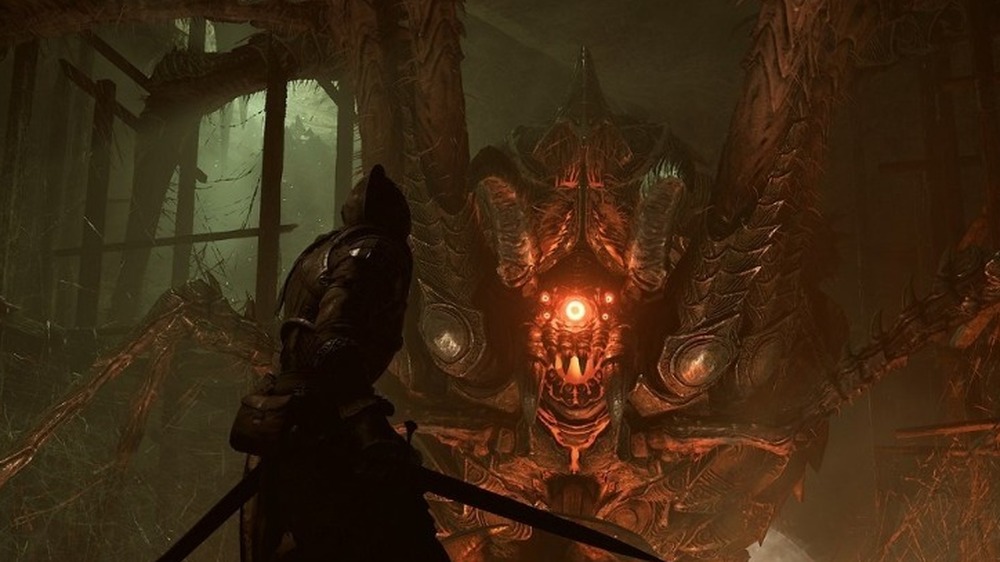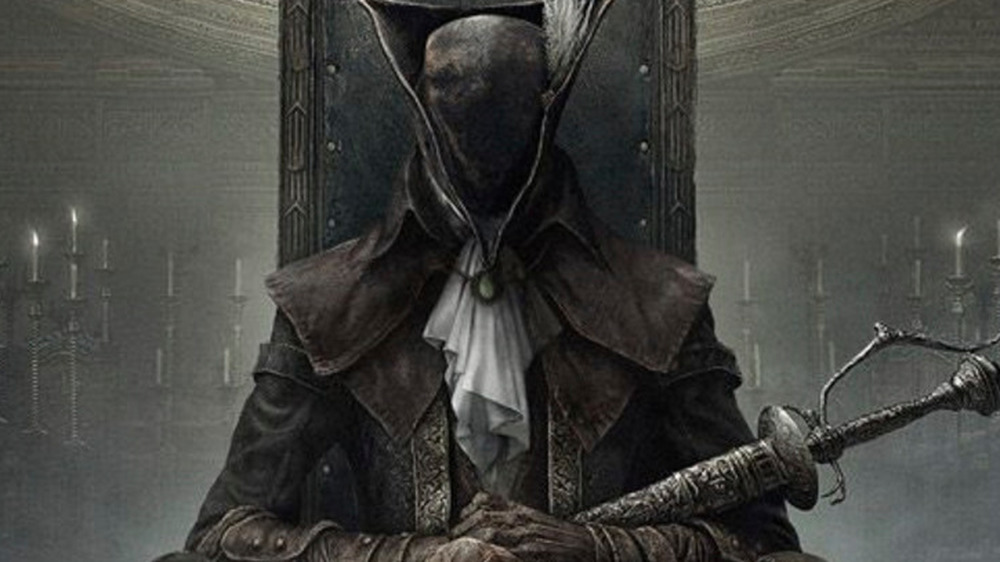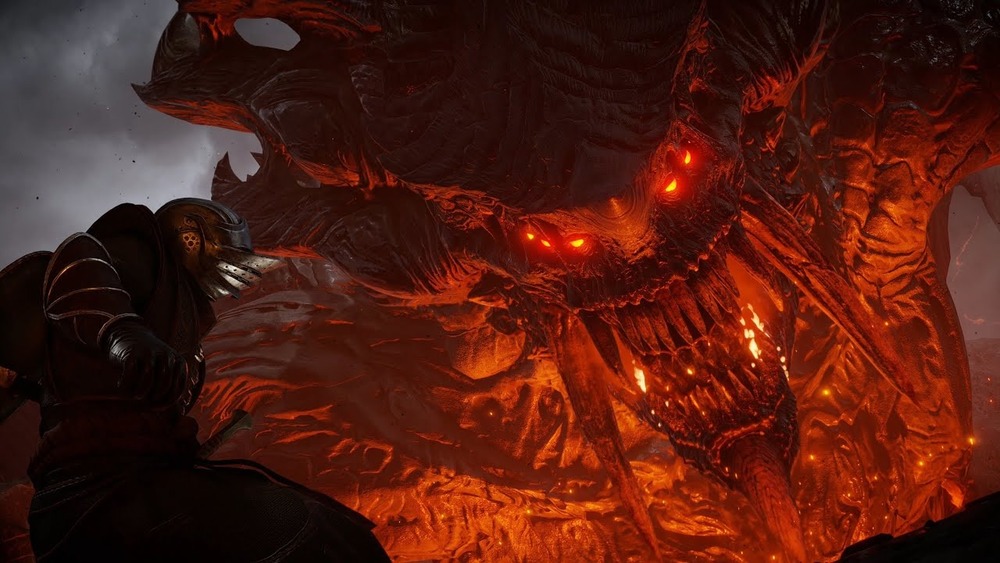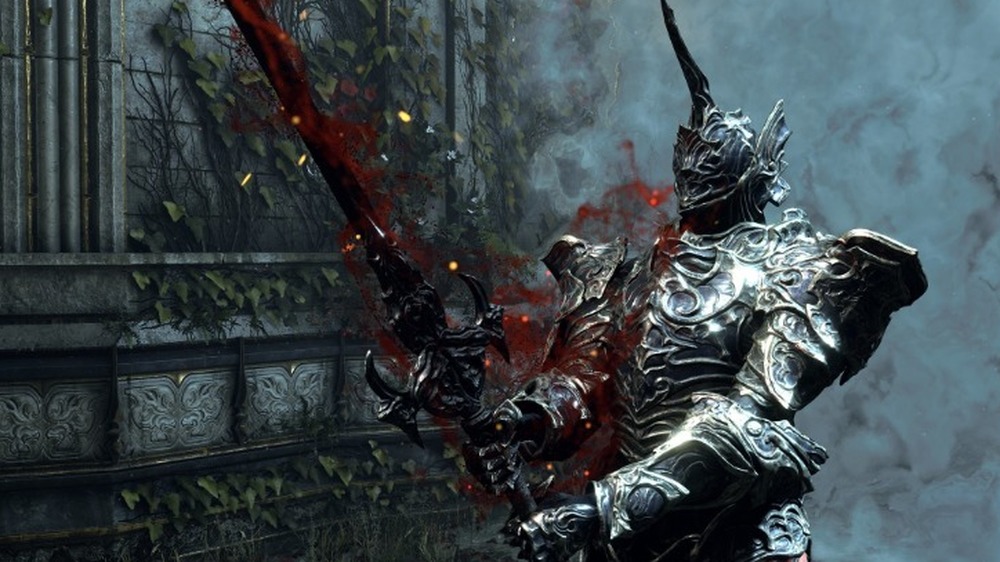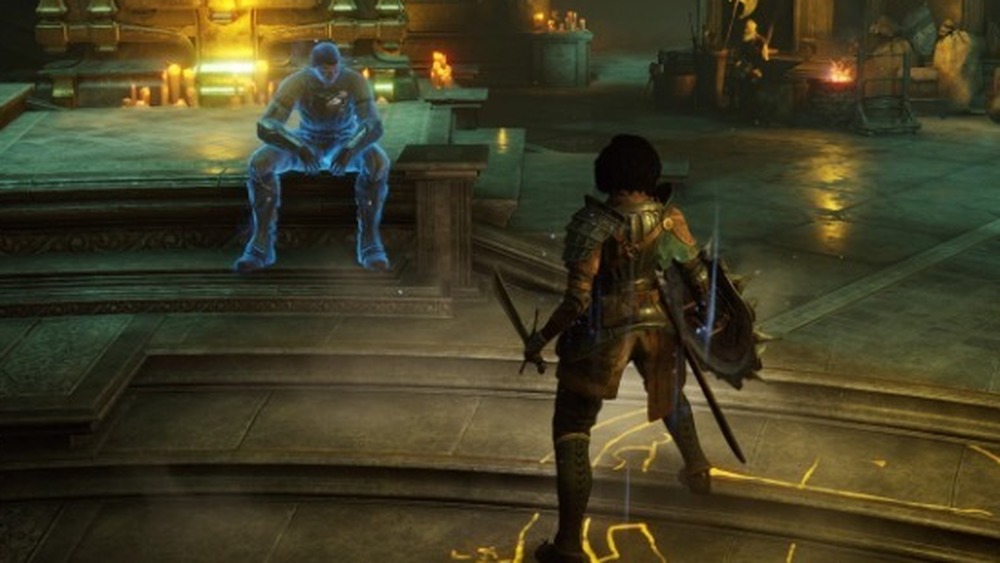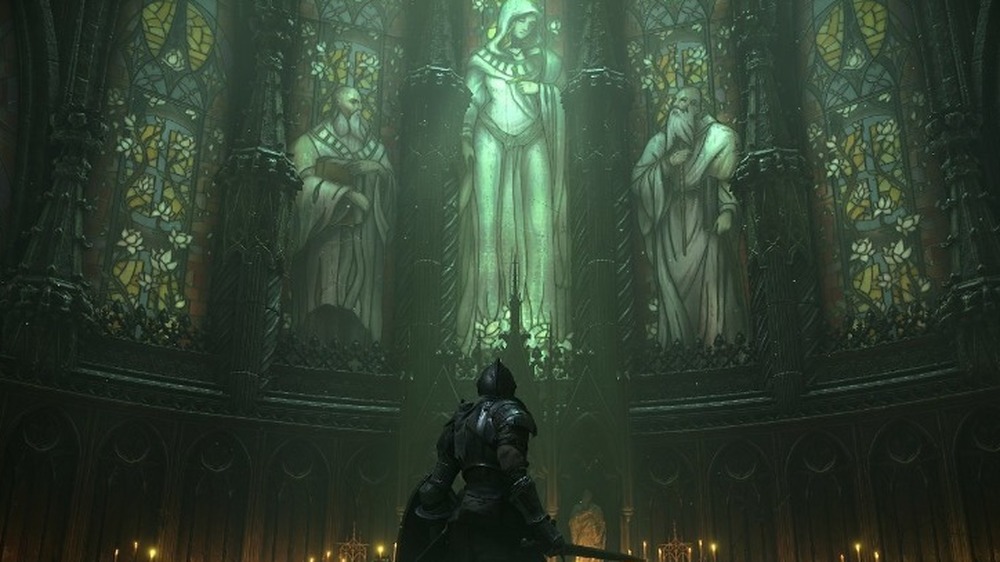The Untold Truth Of Demon's Souls
The Demon's Souls remake from Bluepoint Games is a faithful adaptation of the original Souls-like title with stunning visual upgrades. As driven home by critic reviews, it's truly the best way to replay this FromSoftware classic and is a wonderful reminder of how far the series has come while retaining its challenging roots.
Though Soulsborne games are best known for being incredibly difficult, they're also littered with references and secrets that leave fans clamoring for more. This extends to the history of the series itself, which is defined by unforeseen victories, a visionary creator, and a willingness to push boundaries in game design.
You likely know all about Dark Souls' rise to glory, how it reportedly revolutionized the concept of challenging gameplay and spawned a new genre that indie and AAA devs alike have feverishly tried to capitalize on. But Demon's Souls has its own untold story, including details that might have eluded even the most die-hard Souls fans.
Demon's Souls almost never came to be
The Souls-like genre originated with FromSoftware but has slowly transitioned into a go-to option for developers. Games like Ashen, Nioh, Dead Cells, and many others have picked up the mantle of puzzle-driven combat and frustrating difficulty. Without the original Demon's Souls, however, these games — possibly even the genre — may have never emerged. The gaming world narrowly avoided this fate thanks to the efforts of series creator Hidetaka Miyazaki.
In a 2015 interview with The Guardian, Miyazaki explained how he got his start in game development with FromSoftware, and how he basically stumbled onto the success of the Souls franchise. Starting as a coder for the Armored War series in 2004, Miyazaki saw an opportunity emerge. "Demon's Souls wasn't doing well," he said. "The project had problems and the team had been unable to create a compelling prototype."
With Demon's Souls already on a downward trajectory, Miyazaki reasoned he could have free reign with little risk if he managed to take over the game's development. Sure enough, upon transitioning to the dev team and laying out his vision, he "changed pretty much everything about it." While it wasn't a resounding success, it laid the groundwork for future Souls-like titles.
Demon's Souls is a spiritual successor that led to a spiritual successor
Despite undergoing a name change, the Dark Souls series is known as the spiritual successor to Demon's Souls. But did you know that Demon's Souls itself is something of a spiritual successor to FromSoftware's King's Field series?
You wouldn't know this just by looking at the two titles. Visually reminiscent of the original Doom, King's Field drops you into a first-person perspective as you navigate a labyrinthian layout of medieval-themed caves, castles, and catacombs. Of course, the gameplay couldn't be more different from Demon's Souls. It's not in third-person, there's no roll mechanic or bonfire system, and the level design doesn't weave back on itself in the same ways. However, the moments of frustrating difficulty, the dreadful medieval aesthetic, and slow methodical combat are all present.
Though you might be tempted to label Demon's Souls as a King's Field sequel of sorts, Miyazaki clarified to Rolling Stone that "King's Field and Dark Souls are two separate entities ... guided by differing core game design concepts." However, he admitted during a separate Game Informer interview that "King's Field definitely influenced the ideas behind Demon's Souls, but we envisioned this as a completely original title."
So, as chronicled by multiple Reddit users, don't be surprised if you see familiar areas or even enemy types if you check out King's Field.
Praise the Sun originated in Demon's Souls
Hidetaka Miyazaki seems to treat any rejection of his ideas like a challenge. He often does this either by outright defying conventions, such as basing a game fully around intense difficulty, or sneaking references into his designs and hoping no one will notice.
Take the "Praise the Sun" emote, for example. This iconic element of Dark Souls, used by the surprisingly optimistic Warrior of Sunlight, Solaire, didn't originate with him. Like many elements of the series (Patches anyone?), it was in Demon's Souls first — all thanks to Miyazaki.
In the book Dark Souls Design Works (translation via Giant Bomb user 7Force), Miyazaki unpacked how the meme-worthy pose came to be. "When I presented [Demon's Souls] to the rest of the company I showed them that pose and one of the higher ups told me it just wasn't cool enough." Miyazaki told the executive he'd remove the pose, but he secretly kept it in the game.
With the development of Dark Souls, Miyazaki decided to give the pose its due with a far more prominent role, spawning the "Praise the Sun" meme so many fans know and love.
The reason Demon's Souls 2 never materialized
There's a reason FromSoftware created Dark Souls rather than a Demon's Souls sequel. As with most tales of video game IP, it's all about ownership, sales, and expectations.
"Sony Interactive Entertainment holds the rights to Demon's Souls, and Bandai Namco Entertainment holds the rights to Dark Souls, so they call the shots on remasters and remakes," Miyazaki told Rolling Stone. In 2013, former SIE president Shuhei Yoshida mentioned to Polygon that he "loves FromSoftware's Demon's Souls and would really like to see more of that game on PlayStation platforms." Despite this enthusiasm, Sony's actions in the following years seem to tell a rather different story.
Shuhei admitted to Game Informer that Sony and the Japanese media "underestimated" Demon's Souls. His initial two hour playthrough, which left him stuck at the beginning of the game, ultimately hindered Demon's Soul release in Japan. If not for third party publishers like Atlus and Namco, Demon's Souls might never have become an international cult classic.
Despite Demon's Souls eventual success, Sony dragged its feet on developing a sequel. However, the release of a full Demon's Souls remake as a PS5 launch title seems to indicate the company's newfound confidence in the series. Hopefully, that also means more Demon's Souls in the future.
The Demon's Souls remake was a long time coming
One of the first potential teases of a Demon's Souls remake surfaced in 2015. Amping up the suspense even more, this tease came straight from the official Bloodborne Twitter account. The image in question showed a stack of video games with a very conspicuous case labeled "Demon's Souls" sitting atop multiple copies of Bloodborne.
That was it. Despite the frenzy of resulting speculation, nothing else materialized or seemed to come from the tweet. Rumors began building again in 2018 when Sony updated the ESRB rating for Demon's Souls on PS4, only to die down once more when no Demon's Souls remake announcement followed.
In late 2019, something more tangible happened. A series of tweets in October and November from Bluepoint Games, hot off the critical success of its Shadow of the Colossus remake, cryptically teased a new project. Some thought it referenced Metal Gear, while others expected Castlevania. But during PlayStation's 2020 Future of Gaming stream, Sony at last confirmed that Bluepoint's mysterious project was a Demon's Souls remake for PS5.
You can beat the tutorial stage in Demon's Souls
It's no surprise that Demon's Souls is incredibly difficult. That holds especially true when facing the Vanguard boss during the tutorial. At this point you're inexperienced, wrestling with the gameplay and trying your best to make a dent. In many ways, it feels like this boss encounter is built to make you fail — a suspicion that turns out to be somewhat true. You die and are taken through a cutscene that introduces the Nexus, the hub world you call your home, as well as the overall death-loop and soul-collection process.
Many players take this initial boss encounter at face value and continue on with the game. But here's the thing: you can actually beat the Demon's Souls tutorial boss. After spending what seems like an eternity chipping away at its health bar and avoiding every attack, you're rewarded with a few hundred souls and a Grey Demon's Soul. Shortly thereafter, you enter a secret cutscene ... only to be killed by the Dragon God and sent to the Nexus anyway.
The Dragon God encounter is actually a secret from the original game, not something exclusive to the remake. It's still a rewarding way to get a leg up from the start, even if the end result is the same.
What's behind Demon's Souls' mysterious door?
According a Polygon interview with creative director Gavin Moore, Bluepoint wanted to "try and keep the core of the game untouched. With Demon's Souls, that's the gameplay, the logic, and the AI, and then everything else is stripped away." But that doesn't mean there aren't some unique additions exclusive to the remake.
Perhaps the most obvious of these Demon's Souls remake anomalies was the inclusion of a mysterious door tucked away behind an illusory wall in World 1-3. When the door was discovered and couldn't be opened, fans launched into speculation about how to unlock it and where it might lead. Thanks to some extensive Reddit sleuthing by the fan community, Souls spreedrunner Distortion2 was finally able to get it open.
Opening the mysterious door required collecting ceramic coins, a currency likely familiar to those who have played the Shadow of the Colossus remake. These coins can only be attained in Demon's Souls' Fractured Mode while playing Pure White and Pure Black World Tendencies. The reward for taking on this harrowing feat? The Penetrator Armor Set, based on the Penetrator boss. It may not be the greatest reward for this late in the game, but it's still a unique addition.
The greatest Demon's Souls challenge
Fractured Mode, a take on new game+, wasn't actually part of the first Demon's Souls. This is another Bluepoint Studios original, which Gavin Moore described as "a mirror mode ... that's challenging because you reverse the map." While it doesn't necessarily amp up the difficulty, it does actively disorient the player and hampers any muscle memory you've built.
This new mode may seem surprising coming from a studio that sticks to faithful recreations, but its inclusion may actually reference a scrapped "True Death" from the original. Cut dialogue from the Crestfallen Warrior, which was found via an in-game text dump, mentioned the dangers of dying while in soul form. In the current game, this is a non-issue, meaning that line was likely referencing the unrealized True Death mode.
While the developers at Bluepoint have made no clear reference to this scrapped difficulty, it's possible Bluepoint revived this original idea with Fractured Mode. It's not a completely faithful translation of True Death mode, but it does mark one of the first instances of additional difficulty levels in a Souls-like game. Bluepoint also nearly added an easy mode to the game, but eventually thought better of it.
Demon's Souls' Sixth Archstone
When it comes to cut content, there's little more notorious in Demon's Souls than the Northern Lands. Unused in-game assets point to an abandoned map hidden behind the broken Sixth Archstone in the Nexus. This was first theorized to be a potential DLC drop for the original game where you'd have the opportunity to explore the snowy home of the land of the giants. That never came to pass, and the unused area and theories about the broken Archstone persisted long after its release.
With the announcement of the remake, some fans wondered if Bluepoint would explore adding this unfinished area. And while many are still poking around, now that the secret of the locked door has been solved, it's very unlikely that there's a secret entrance to a new level in the Nexus.
According to Moore, "there was a long and hard discussion," but "there is no sixth Archstone. There are only five Archstones in the Nexus. It's true to the original, there's no new Archstone, there's no new world." One can hope that with the success of the Demon's Souls remake, this could be an area explored in a potential sequel. For now, it's just a fan-favorite theory with no solution.

